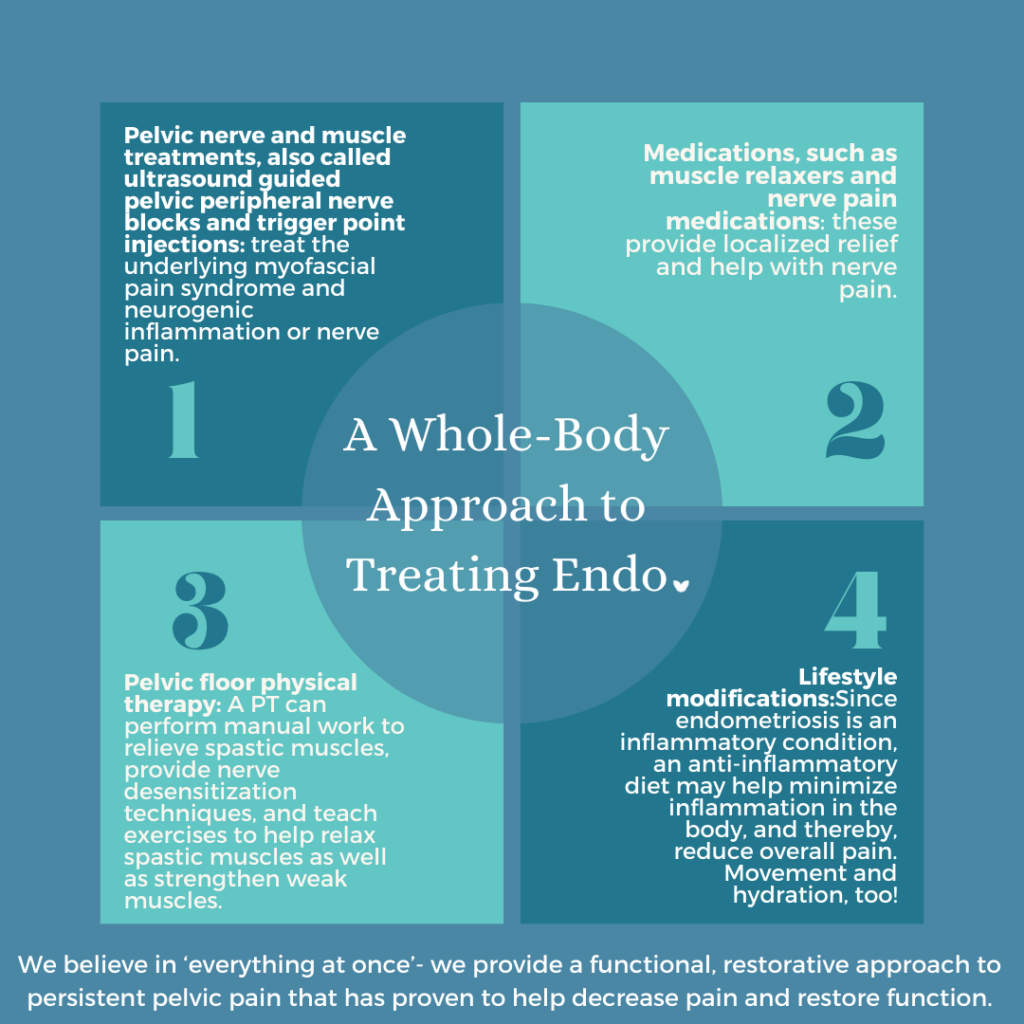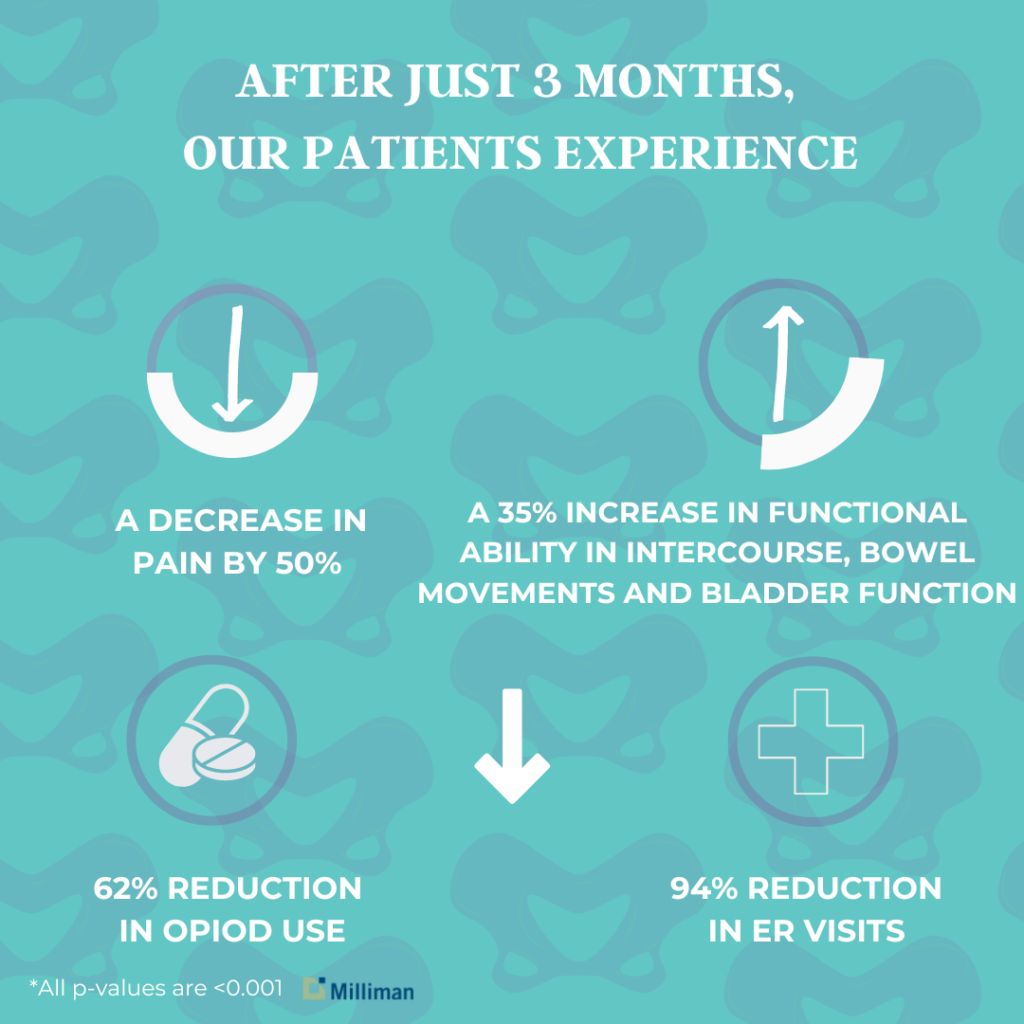By TAYYABA AHMED, DO
One of the biggest misconceptions about endometriosis is that it is a gynecologic disease.
The reason this may be confusing is because the word uterus is often in the definition. But if you don’t read the entire definition properly, you may miss the fact that endometriosis is everywhere BUT the uterus.
So one more time- Endometriosis is an inflammatory disease in which tissue, (similar to the lining of the uterus), grows outside of the uterus.
Because of this, we know endometriosis is there all month long, all year long and does not come out unless someone takes it out surgically.
- No medication,
- No pregnancy,
- No hysterectomy,
- No birth control, or any other medication, physical therapy or conservative treatment like a heating pad, diet or acupuncture can remove endometriosis.
If you understand this, then you know that, even after endometriosis excision surgery to remove endometriosis, you can still have endometriosis regrow and many times small, microscopic pieces of endometriosis can remain affecting your entire body.
The impact of the endometriosis can cause long term effects on your musculoskeletal systems from the chronic compensatory changes from being in pain for so long. For instance, endometriosis does not directly cause a labral tear in the hip- but endometriosis can cause you to walk improperly because of the pain in the abdomen- thus causing you to tear your labrum in your hip. An indirect correlation.
Another example- Endometriosis can cause you to clench your pelvic floor, which then causes urinary frequency, urgency, and incomplete urination/voiding. But endometriosis can also be on the bladder, making this a very important point that without proper surgical removal of endometriosis- the symptoms may persist and are often confused for other diagnosis’s.
Sometimes a new patient will tell me on their first visit that “I used to have endometriosis but now I don’t.” That’s similar to a diabetic patient on medication saying “I used to have diabetes.” Unfortunately- endometriosis is a total body disease that can affect many systems that is a lifelong disease.
For more specific signs and symptoms of endometriosis read the 20 most common symptoms of endometriosis. This post goes into how endometriosis may affect the bowels, bladder, sex, digestion, respiratory and even mental health.
Does endometriosis hurt all the time?
The answer to this is not so straightforward and can be confusing for some. I get told quite often: “…but my period doesn’t hurt that bad” or “…it only hurts real bad for 2 days” or “…my stomach hurts all month, not just with my period- so it can’t be endometriosis.”
Endometriosis affects people differently. Some people may have many symptoms affecting a wide range of organs, and some can have very mild symptoms affecting minimal systems. Remember pain is subjective. As much as we try to make a scale for pain, it’s hard to know a person’s perception of pain. As pelvic pain specialists, we can only use what our patients tell us.
We have found patients with little endometriosis on surgical pathology present with severe symptoms and others with deep infiltrating endometriosis during surgery have mild symptoms. As physicians we treat the patient and allow the endometriosis specialists do what they are best at, which is excising the endometriosis out.
What triggers endometriosis pain?
Endometriosis pain is triggered by estrogen and by inflammation. Estrogen can cause endometriosis lesions to grow, thus causing more inflammation. Endometriosis lesions also produce their own estrogen and there are a higher numbers of estrogen receptors on endometriosis lesions, which can cause higher prostaglandin production- the chemical that causes pain.
Ultimately lowering the amount of estrogen that you take in through food, medication and other products is helpful, but will not decrease the estrogen endometriosis makes. Which is why removing the endometriosis is so important!
Can you have endometriosis without a menstrual cycle?
Many patients are instructed by their Gynecologists to go on continuous birth control (by skipping the placebo pills) to avoid menstruating. Though this is a way to decrease the pain from menstruating- and for many who only have pain during this time- it can help symptoms significantly (but remember endometriosis is still there growing).
For others- not having a menstrual cycle, whether from birth control regulation or from a hysterectomy- does not mean the endometriosis is removed- and their symptoms from the endometriosis on the bowel, bladder, pelvic walls, diaphragm and all the places it may have grown- can persist all month long whether they menstruate or not.
Remember: endometriosis is not a gynecologic disease. It is an inflammatory disease – you can have it without menstruation, and it can cause pain without a period.
The important thing to always remember is that pain may be normalized but it is never normal. If you are experiencing pain or symptoms that do not feel normal to you, find a doctor who will listen and evaluate your symptoms. Living with endometriosis does not have to mean living with pain.


Would You Like to See a Specialist?
Call us at (646) 481-4998 or click to request a regular appointment.